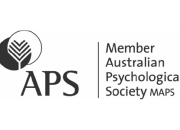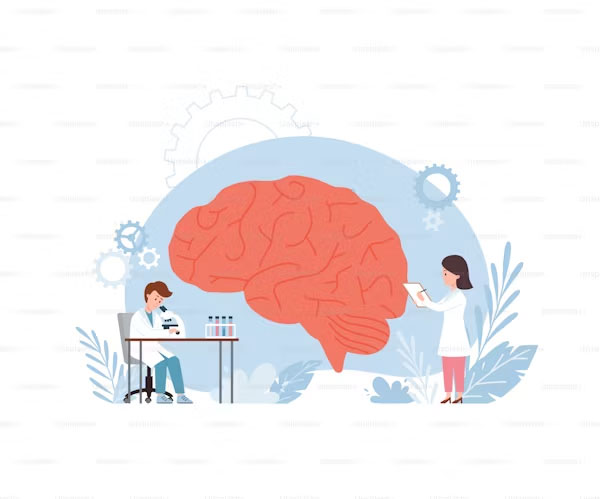
Registered with AHPRA

Registered with APS

More than 20 years combined experience
Make an appointment
Telehealth
Secure Minds Psychology extends beyond traditional face-to-face consultations, offering convenient telehealth services through video calls or phone consultations. Our qualified psychologists are accessible across Victoria, ensuring Australians can access expert support from the comfort of their own space.
If you or someone you care about needs psychological assistance but cannot attend an in-person session, contact your General Practitioner or reach out to Secure Minds Psychology for personalised guidance.
Fees & Pricing
Clinical Psychologist
Clients referred under a Mental Health Care Plan will receive a medicare rebate of $141.85 per consult.
$141.85
General Psychologist
Clients referred under a Mental Health Care Plan will receive a medicare rebate of $96.65 per consult.
$96.65
Funding Options:
As a client of Secure Minds Psychology you can seek psychological support on a private basis, however you may be eligible for a variety of funding options. Each person will be informed of any funding options of which they may be eligible
- Mental Health Care Plans under Medicare
- National Disability Insurance Scheme (NDIS)Self-managed & Plan Managed Participants
- WorkCover
- Transport Accident Commissions (TAC)
- Private Health Funds
- Victims of Crime (VOCAT)

Treatment Approaches
Cognitive Behavioural Therapy (CBT) is a purpose-driven therapeutic method that targets the interplay between thoughts, emotions, and actions. It’s designed to identify and reshape negative thought patterns and behaviors that contribute to emotional distress or maladaptive behaviors.
Through collaborative work with your therapist, CBT empowers you to recognise and challenge distorted or irrational thoughts, replacing them with more balanced and realistic perspectives. This process helps individuals suffering from anxiety, depression, and phobias to gain insight into their thinking patterns and develop effective coping strategies.
Structured and time-bound, CBT often involves practical assignments and active engagement. It equips individuals with invaluable tools to manage symptoms and prevent relapse, fostering enhanced emotional regulation, increased self-esteem, and a stronger sense of personal agency.
Acceptance and Commitment Therapy (ACT) stands as a transformative approach in psychotherapy, blending mindfulness and behavioural techniques to foster psychological adaptability and pave the way for a more fulfilling existence. Rather than battling against unwanted thoughts and emotions, ACT encourages individuals to embrace them, recognising that resistance often amplifies suffering. Instead, the focus shifts towards acknowledging these internal experiences while taking purposeful actions in line with personal values.
At its core, ACT empowers clients through mindfulness practices, enabling them to observe their mental landscape with compassion and without judgment. This heightened awareness cultivates a deeper understanding of one’s inner world. Central to the therapy is values clarification, guiding individuals to pinpoint the aspects of life that hold genuine significance. Through a range of exercises and metaphorical tools, participants learn to detach from their thoughts, gaining mastery over their emotional responses and diminishing the grip of negative cognitive patterns.
Moreover, ACT propels individuals towards meaningful action, urging them to make choices aligned with their values, even amidst discomfort or distressing emotions. This deliberate commitment enables individuals to transcend avoidance behaviors, fostering a life rich in purpose and authenticity. Widely recognised for its efficacy, ACT serves as a comprehensive intervention for a spectrum of mental health challenges, including anxiety, depression, chronic pain, and stress-related disorders. By championing psychological flexibility, ACT instills a holistic framework for well-being, empowering individuals to navigate life’s complexities with resilience and vitality.
Intensive Short-Term Psychodynamic Psychotherapy (ISTDP) is a time-limited therapeutic approach that focuses on exploring and resolving deep-seated emotional conflicts, often stemming from unconscious sources. It combines elements of psychodynamic theory, attachment theory, and emotional processing to facilitate rapid insight and change.
ISTDP operates on the premise that many psychological symptoms and difficulties arise from repressed emotions and unresolved past experiences. Your psychotherapist would actively engage with you, encouraging the surfacing of repressed emotions and patterns of defence mechanisms that hinder emotional growth. Through a supportive yet challenging therapeutic relationship, ISTDP aims to increase the client’s awareness of these defence mechanisms and their underlying emotional triggers.
The therapeutic process involves helping the client recognise and tolerate previously avoided feelings, which can lead to a release of emotional tension and promote personal growth. By addressing the root causes of emotional distress and promoting emotional expression, ISTDP aims to alleviate symptoms such as anxiety, depression, and relationship difficulties as well as other negative emotional states.
Dialectical Behavioural Therapy (DBT) stands as a comprehensive therapeutic modality initially crafted for borderline personality disorder, yet its adaptability extends to a myriad of mental health conditions. Integrating cognitive-behavioural strategies with mindfulness techniques and dialectical principles, DBT embodies a dual focus on acceptance and transformation.
Central to DBT’s efficacy is its arsenal of skills aimed at bolstering emotional regulation, interpersonal adeptness, distress tolerance, and mindfulness. Clients engage in a journey of self-discovery, mastering techniques to identify and navigate intense emotions, cultivate healthier relationships, withstand distress without succumbing to harmful behaviors, and embrace present-moment awareness through mindfulness practices.
Practitioners of DBT employ a delicate balance of acceptance and change methodologies, validating clients’ experiences while guiding them towards constructive coping mechanisms. This therapeutic journey often unfolds through a combination of individualised therapy sessions and group-based skills training, equipping participants with tangible tools for managing emotional turbulence and relational complexities in their everyday lives.
DBT’s effectiveness transcends its original target, showcasing efficacy in diverse mental health domains such as depression, anxiety, eating disorders, and addiction. By furnishing individuals with actionable skills to navigate emotional upheaval and interpersonal dynamics, DBT serves as a catalyst for enhancing emotional well-being, social integration, and overall life satisfaction.
Attachment-Based Therapy is a therapeutic approach firmly grounded in attachment theory, which explores the profound impact of early relationships and attachments on psychological well-being. This method aims to cultivate healthy attachment patterns, strengthen interpersonal relationships, and address emotional struggles stemming from early attachment experiences.
Attachment-Based Therapy assists individuals by fostering a secure therapeutic relationship that mirrors healthy attachment dynamics. Clients are encouraged to delve into and comprehend how their early attachment experiences with caregivers might have influenced their current emotional patterns and relationships. Therapists aid clients in gaining insight into attachment-related behaviours and collaborate to reshape maladaptive patterns.
The therapeutic process often involves unpacking unresolved emotions stemming from past attachment experiences, fostering emotional regulation, and deepening understanding. It can prove beneficial for addressing issues such as anxiety, depression, trauma, and relationship difficulties. Attachment-Based Therapy also helps clients learn to form healthier, secure attachments in their present relationships, thus enhancing emotional resilience.
By addressing the roots of emotional challenges and bolstering emotional security, individuals can experience improved self-esteem, healthier interpersonal connections, and a greater ability to manage their emotions and reactions. This approach offers a holistic perspective on psychological well-being, focusing on the intricate connections between early attachment experiences and current emotional functioning.
Cognitive Processing Therapy (CPT) is a specialised form of cognitive-behavioural therapy (CBT) designed primarily to address post-traumatic stress disorder (PTSD). It follows a structured, evidence-based approach aimed at helping individuals process traumatic events, challenge distorted thought patterns, and alleviate the distressing symptoms associated with trauma.
CPT assists individuals by guiding them through a systematic process of examining and reassessing their thoughts and beliefs about the traumatic experience. This process involves:
1. Education: Clients learn about the common reactions to trauma and how it can impact thoughts, emotions, and behaviours.
2. Thought Record: Clients are encouraged to identify and document their negative or distorted thoughts related to the trauma.
3. Cognitive Restructuring: Therapists support clients in evaluating and reframing these thoughts using evidence-based techniques, enabling them to develop a more balanced perspective.
4. Exposure: Clients confront and process their emotions by writing about or discussing the traumatic event, gradually reducing avoidance behaviours and emotional distress.
5. Skill-building: Clients acquire coping strategies to manage distressing emotions and regain a sense of control.
CPT has proven highly effective in reducing PTSD symptoms such as intrusive thoughts, nightmares, and emotional numbness. It helps individuals gain insight into their trauma, challenge self-blame, and develop healthier coping mechanisms. By addressing the cognitive aspects of trauma, CPT empowers individuals to regain control over their lives, enhance their mental well-being, and progress towards post-traumatic growth and recovery.
Schema therapy is a therapeutic approach that centres on identifying and addressing deeply ingrained negative patterns of thinking, feeling, and behaving known as “schemas.” These schemas, developed during childhood, are unhelpful and often maladaptive core beliefs that shape individuals’ perceptions of themselves, others, and the world. Drawing from cognitive-behavioural, psychodynamic, and attachment theories, this approach integrates various elements.
Schema therapy assists individuals by pinpointing these dysfunctional schemas and their associated coping mechanisms through a structured process. Your psychotherapist collaborates with you to uncover the origins of these schemas, typically rooted in early experiences, and helps you grasp their impact on your emotions, relationships, and overall functioning. The therapy entails cognitive restructuring, emotional processing, and behavioural techniques to challenge and modify these negative patterns effectively.
By enhancing awareness of these schemas and fostering healthier coping strategies, individuals can undergo profound transformations in their emotional well-being and interpersonal dynamics. Schema therapy is particularly adept at addressing complex and persistent issues such as chronic depression, personality disorders, and ongoing relationship difficulties. It encourages self-compassion, self-understanding, and adaptive behaviours, empowering clients to break free from self-defeating cycles and nurture more fulfilling lives and connections.
Let’s Talk
Secure Minds Psychology is centrally situated in Beaconsfield, a mere two-minute drive from the Monash Freeway (M1) and Old Princes Hwy. Beaconsfield’s strategic location amidst key Southeast Melbourne suburbs enhances accessibility to mental health support and psychological services within the local community.























